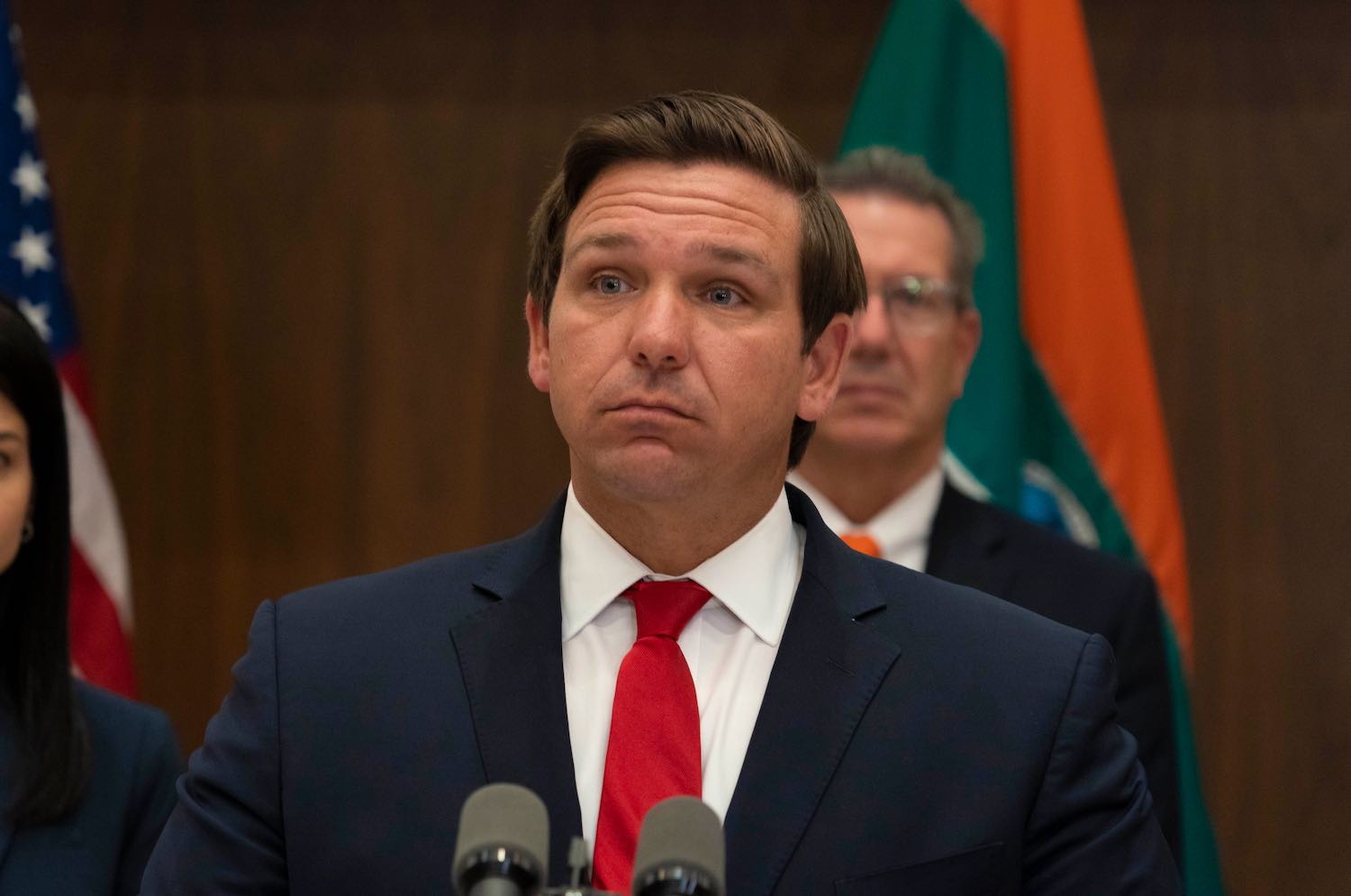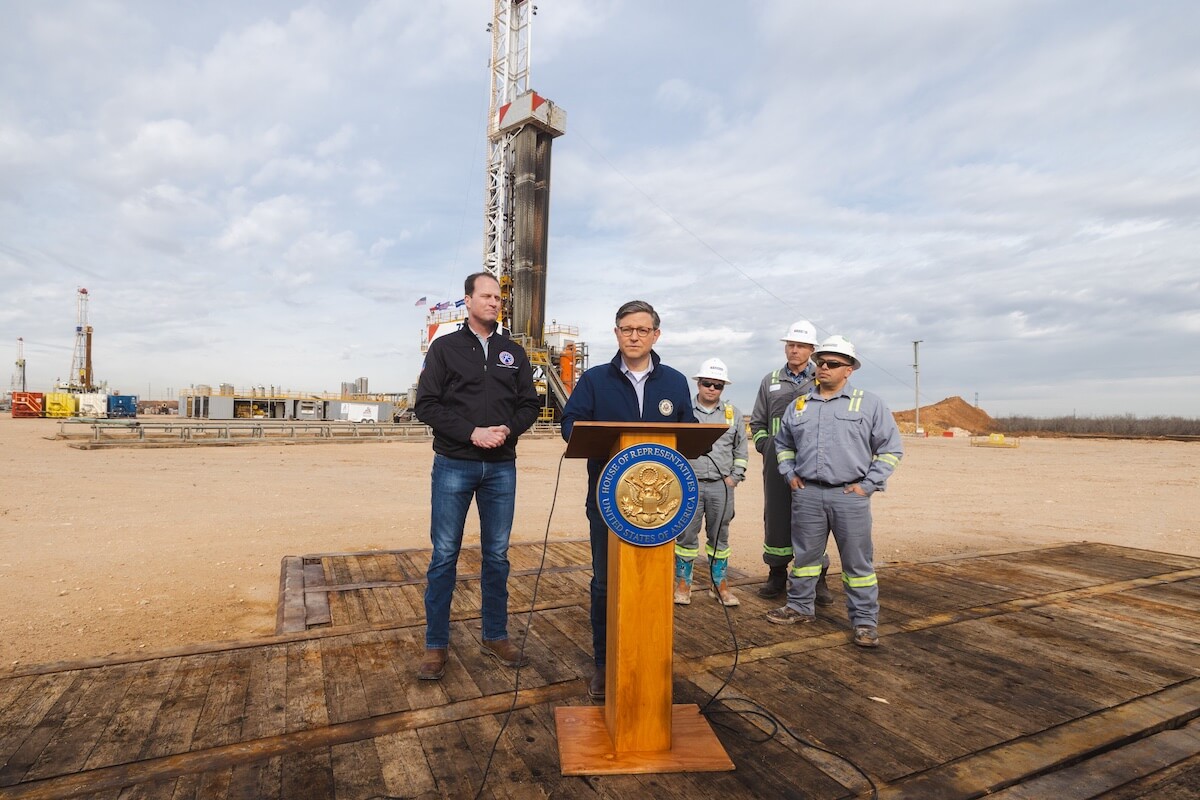ImpactAlpha, Aug. 24 – Firms engage in ‘greenwashing’ when they deceive customers or investors about their environmental practices and their impact.
Now come politicians who neglect their fiduciary and governing duties by substituting their ideological agendas for attention to material risks to their cities and states.
Call it ‘riskwashing.’
Most stewards of other people’s money want more, not less, information about possible investment risks. Not Republican governors and state treasurers, who have mounted a coordinated campaign from public office to limit or prevent the consideration of ESG, for environmental, social and governance risks, in the management of state and local assets.
Take Texas, a pioneer of the anti-ESG movement. The state last year blacklisted JPMorgan Chase, Bank of America, Goldman Sachs and two other large banks that Texas Comptroller Glenn Hegar said discriminated against fossil fuel or firearms companies. Those banks collectively underwrote more than a third of the state’s municipal bonds.
The switch to smaller underwriters has cost taxpayers up to $532 million in extra fees in just the first eight months, according to economists at The Wharton School of the University of Pennsylvania and the Federal Reserve. That includes the hefty $13 million fee charged by Jefferies to manage a $3.4 billion bond offering.
The irony: the Texas bond is being issued to “bail out” that state’s natural gas utilities. They were caught unprepared by the deep freeze that struck the state last February and left more than 11 million people without power. Several of the utilities and resellers declared bankruptcy.
Identifying and planning for climate-related risks, such as extreme weather events, is something good ESG practices would have flagged.
Bad business
Florida’s State Board of Administration yesterday approved rules proposed by Florida Gov. Ron DeSantis that prevent pension funds that manage state and local government money from considering “nonpecuniary” ESG factors. Florida and Texas are among a growing number of mostly Republican-led states that have introduced laws penalizing investment firms that have adopted ESG practices.
“We’ve taken on woke corporations. We’ve taken on ESG,” DeSantis said at a recent news conference on teacher recruitment.
What DeSantis and other ESG scapegoaters haven’t taken on are material risks to corporate performance and the broader financial system, including climate change, income inequality and racial injustice that have long been neglected by traditional investors – and by the anti-ESG politicians themselves.
Florida’s earlier Stop WOKE Act limits how race-related concepts are addressed in workplace training.
A Florida judge on Monday ruled the act “unconstitutional” after Florida small businesses filed suit to restore their abilities to navigate the real world of diverse employees, customers and suppliers. One plaintiff, the wedding registry company Honeyfund, said nixing such training “would risk losing substantial benefits to its businesses.”
“The act silences speech aimed at combating racism and sexism — speech that is vital to the plaintiffs’ operation of their businesses,” the lawsuit charges.
Impact outcomes
Investors in recent years have begun to consider environmental, social and governance factors – think carbon emissions or worker safety – in their decision-making on the premise that better understanding of such risks leads to better investments.
The anti-ESG rhetoric and policies don’t address real weaknesses of the investment practice. Among impact investors, the most common criticisms of ESG investing is that it doesn’t go far enough to mitigate companies’ impacts on society, nor risks to the entire economic system.
Don’t tell the anti-woke politicians, but delivering actual impact is the next frontier for ESG investing.
“A rapidly growing community of investors – ranging from big institutions to individual retirees – is building beyond the ESG baseline and demonstrating how to successfully invest with an impact lens,” Amit Bouri of the Global Impact Investing Network wrote in ImpactAlpha earlier this year. “They are not just focused on the impact of the world on their portfolio, but on how their portfolios can be invested to create an inclusive, sustainable world that will support a healthy economy over the long-term.”
The Economist’s summer issue last month declared ESG “a broken idea” and said it “needs to be streamlined and stripped of sanctimoniousness.” In response, Sir Ronald Cohen, the one-time “father of British venture capital” turned impact investor, said the solution is more impact, not less.
“Integrating standardized impact measurement into mainstream investment practice, in the same way we did with risk measurement in the second half of the 20th century, is the path that leads ESG beyond greenwashing,” writes Cohen, chair of the Global Steering Group for Impact Investment. Measuring impacts alongside profits, he says, “revolutionizes the ability of market economies to deliver solutions to our great challenges alongside rising prosperity.”
Taxpayer-funded
Kentucky is another state that has enthusiastically signed on to the anti-ESG train. A law enacted in April prohibits state agencies from doing business with companies that “boycott” fossil fuel companies. A few months later, deadly flash flooding devastated communities in some of the poorest counties in the U.S., part of a wave of extreme climate events that scientists say are exacerbated in large part by fossil fuel emissions.
“A lot of these places have never flooded,” Mayor Donald Mobelini in Hazard, Kentucky, told CNN. “These people will not have flood insurance. So therefore, if they lose their home, it’s a total loss. There’s not going to be an insurance check coming to help that.”
FEMA has already provided more than $40 million in direct aid to affected households. The Kentucky flooding was one of five “thousand-year” floods across the U.S. in the past few weeks.
In Dallas, Texas, 15 inches of rain fell in a little over 24 hours earlier this week. The county declared a state of disaster and called for federal aid. At a press conference, Texas Gov. Greg Abbott cited “extreme weather,” but avoided the term climate change. He noted that the period between April and July was Texas’ hottest on record.
Economic losses apparently matter less than political purity. For its next target, the anti-woke brigade is eyeing insurance companies that take environmental factors into account when assessing risks.
“It looks like insurance markets are beginning to write coverage based on ESG criteria,” Florida’s chief financial officer Jimmy Patronis declared this month. “We need to fight ESG within the insurance markets because it’s another theater of battle.”
Financial threats
It so happens that the 17 or so conservative-leaning states that are passing “anti-woke” laws may be among the hardest hit by climate change.
New research from First Street Foundation found that the rising number of “extreme danger” days – those with a heat index above 125°F – will affect 107 million people in 2053. The study maps an “extreme heat belt” that cuts a swath from Louisiana and eastern Texas up through Missouri and Iowa. Also affected: southern Florida, which could see the number of days over 103 degrees increase seven-fold by midcentury.
“We are prioritizing the financial security of the people of Florida over whimsical notions of a utopian tomorrow,” declared DeSantis is passing the resolution banning managers of the the state’s roughy $240 billion in pension fund assets from taking ESG factors into account.

On the contrary, investors and companies have a fiduciary duty to address their climate risks.
The coordinated attacks on ESG and climate policies rest on a “blatant fiction,” writes Ceres’ Mindy Lubber. “These state officials would have you believe that drought, crop failure, weakened infrastructure and worsening public health don’t stand as serious financial threats to business interests and our economy at large.”
“The bottom line is that the effects of climate change will mean one of two things for companies’ long-term outlooks,” Lubber says. “Either their resources and assets will be put at severe risk, or they will avert the worst of that risk because our society shifted to a cleaner economy.”











